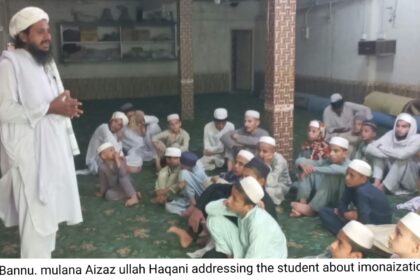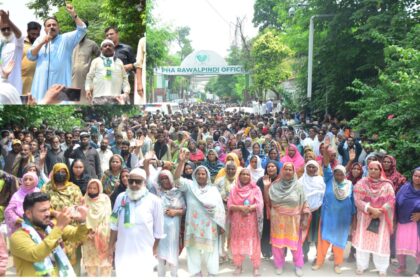<h2>Sindh Education Department Completes Critical Education in Emergencies Training</h2>
The Directorate (ES&HS) of the School Education & Literacy Department, Government of Sindh, successfully concluded a three-day training on Education in Emergencies organized by the Reform Support Unit. The programme strengthened participants’ skills across disaster preparedness, psychosocial support (PSS), risk assessment and School Emergency Response Planning (SERP), with practical sessions designed to improve school-level readiness.
<h2>Director Emphasizes Building Resilient Education Systems</h2>
<p>Hafiz Shahabuddin Indher, Director (ES&HS), served as chief guest and highlighted the School Education & Literacy Department’s commitment to building resilient <a href=”https://islamabadmail.com/category/education/” rel=”dofollow”>education systems</a>. He underscored the need for integrated SERP measures and PSS services to ensure learning continuity for children when crises strike.</p>
<h3>Key Focus Areas of the Training Program</h3>
The training on Education in Emergencies brought together officials and practitioners from across Sindh to share best practices and develop actionable plans for their districts. Emphasis on risk assessment aimed to help schools identify vulnerabilities and implement targeted mitigation to protect students and staff. The comprehensive program covered multiple critical areas essential for maintaining educational continuity during crisis situations.
<h2>Disaster Preparedness and Emergency Response Planning</h2>
Participants engaged in intensive sessions on School Emergency Response Planning (SERP), learning how to develop comprehensive emergency protocols tailored to their specific school contexts. The training emphasized the importance of proactive planning rather than reactive responses. Officials learned to conduct thorough risk assessments, identify potential hazards including natural disasters, conflicts, and health emergencies, and develop appropriate mitigation strategies.
<h3>Psychosocial Support for Students During Emergencies</h3>
A significant portion of the Education in Emergencies training focused on psychosocial support (PSS) services for students affected by crises. Participants learned evidence-based approaches to identify trauma symptoms in children, provide appropriate emotional support, and create safe learning environments that promote healing and resilience. The training highlighted that Education in Emergencies must address not only physical safety but also the mental health and emotional well-being of learners.
<h2>Practical Implementation Strategies</h2>
The three-day program included hands-on workshops where participants developed district-specific Education in Emergencies action plans. These practical sessions enabled officials to translate theoretical knowledge into concrete implementation strategies. Teams worked on creating emergency communication protocols, establishing coordination mechanisms with local authorities, and designing rapid response procedures for various crisis scenarios.
<h3>Multi-Stakeholder Collaboration for Education Continuity</h3>
The training emphasized the critical importance of multi-stakeholder coordination in Education in Emergencies contexts. Participants explored strategies for building partnerships with humanitarian organizations, health departments, and community leaders to ensure comprehensive support for affected schools and students. The program highlighted successful case studies from other regions that demonstrated effective coordination models.
<h2>Strengthening Sindh’s Education Resilience Framework</h2>
<p>By embedding disaster preparedness and psychosocial support into routine school planning, the department seeks to safeguard education delivery during emergencies and strengthen community confidence in the resilience of Sindh’s education system. The province faces various challenges including flooding, natural disasters, and other emergencies that can disrupt learning. For more information on international Education in Emergencies standards, visit the <a href=”https://inee.org/” rel=”dofollow” target=”_blank”>Inter-agency Network for Education in Emergencies</a>. You can also read more <a href=”https://islamabadmail.com/category/pakistan/” rel=”dofollow”>Pakistan education news</a> on our site and explore <a href=”https://islamabadmail.com/category/regional/” rel=”dofollow”>regional education initiatives</a>. Learn more about <a href=”https://www.unicef.org/education/emergencies” rel=”dofollow” target=”_blank”>UNICEF’s Education in Emergencies programs</a>.</p>
<h3>Next Steps and Long-Term Vision</h3>
The Sindh Education Department plans to roll out district-level Education in Emergencies implementation teams following this training. Participants will serve as master trainers, cascading knowledge to school administrators and teachers across the province. The department is committed to establishing a robust monitoring and evaluation framework to track progress and ensure that Education in Emergencies preparedness becomes an integral part of Sindh’s educational planning and policy.











